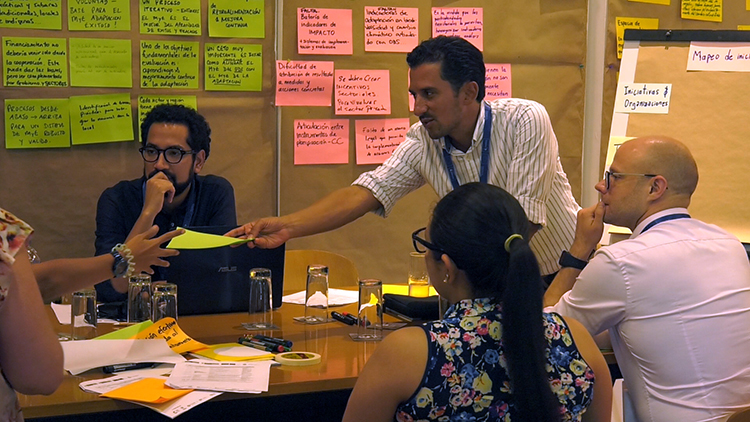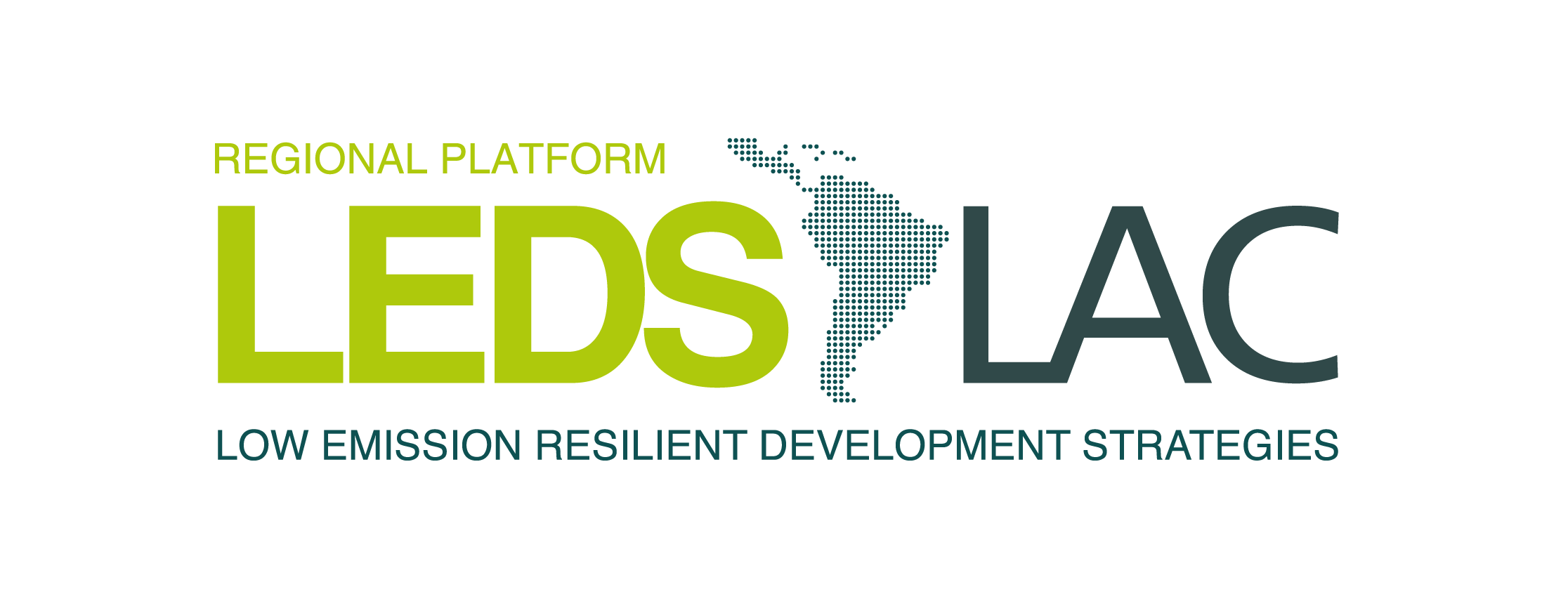Climate change adaptation monitoring and evaluation are key to NDC's progress in the area.
Santiago de Chile, July 24, 2019. The VI Workshop of the Regional Group of Latin America and the Caribbean: "Monitoring and Evaluation of Adaptation to Climate Change in light of the Enhanced Transparency Framework", ended with a call to strengthen spaces for dialogue and exchange of experiences and lessons learned with a view to the design and implementation of robust climate change adaptation strategies that ensure progress towards compliance with the Paris Agreement.
The event, held in Cartagena, Colombia, July 16-19, was a joint effort of the Government of Colombia, the Partnership for Transparency in the Paris Agreement (PATPA) and the EUROCLIMA+, through its Climate Governance Component, implemented by FIIAPP, GIZ, ECLAC and UN Environment, in collaboration with LEDS LAC.
The workshop addressed the challenge of building national monitoring and evaluation (M&E) systems for climate change adaptation in order to learn about their progress and thus support the formulation of public policies in the countries of the region and help promote a framework of transparency at the international level.
Vanessa Moosmann, representative of the Paris Agreement Transparency Partnership (PATPA), highlighted the importance of this type of dialogue to achieve greater progress in the implementation of effective climate policies and Nationally Determined Contributions (NDCs).
Maria Järviö, representative of the European Union Delegation in Colombia, highlighted the role that EUROCLIMA+ plays in the region. "EUROCLIMA+ is a reflection of the European Union's commitment to the Latin American region. This workshop is an example of the value that EUROCLIMA+ can bring to the region," he said.
The event was attended by Jose Francisco Charry, Director of Climate Change and Risk Management (MiAmbiente, Colombia), who highlighted the importance of the workshop. "For the first time we are beginning to see a joint vision between mitigation and adaptation. Colombia is in the process of updating its NDC and everything we learn here will be a contribution in that sense. The inclusion of climate change adaptation in planning instruments in the territories is fundamental to face climate change," he explained.
On the eve of the Pre-COP in Costa Rica and the COP25 in Chile, Jimy Ferrer, economic affairs officer for the United Nations Economic Commission for Latin America and the Caribbean (ECLAC), said Sustainable Development and Human Settlements Division of the Economic Commission for Latin America and the Caribbean (ECLAC)He highlighted the importance of these two events to discuss adaptation M&E systems at the regional level. "These are spaces for discussion to address at regional level the need to have this type of systems for the field of adaptation to climate change," he said.
Diana Vargas, deputy director of the Institute of Hydrology, Meteorology and Environmental Studies (IDEAM) of Colombia, called for the application of the knowledge acquired in this activity: "after this workshop we have to take action. Our responsibility is to go home and implement the adaptation measures we need," she emphasized.

Workshop conclusions
One of the topics discussed by the participants of the event was the importance of institutional strengthening for the M&E of adaptation. Taking into account that the generation of information, collection, measurement and dissemination involves more than one institution, the need to progress in the articulation and coordination within governments, between levels of government (national and sub-national), between governments in the region, and between organizations working on these issues was highlighted.
Another issue highlighted at the workshop was the need to mainstream adaptation into the planning processes and development strategies of the countries. This is not only for the purpose of advancing mitigation and adaptation policies, but also to boost economic growth, employment, poverty reduction and inequality.
Likewise, an important point reiterated by the participants in the event was the possibility of taking advantage of the experience acquired by some countries in terms of metrics or indicators that identify progress or setbacks in areas such as vulnerability reduction, strengthening resilience and increasing adaptive capacity. Considering these experiences would make it possible to choose and work with common metrics, and thus move towards sustainable development.
On the other hand, attendees agreed on the need to continue working within the framework of South-South cooperation, synergistic work, partnerships between countries and communities of practice to achieve progress in monitoring and evaluation of adaptation. In this context, the role of EUROCLIMA+ and the Partnership for Transparency in the Paris Agreement (PATPA) in supporting Latin American and Caribbean countries in these tasks was highlighted.
The activity brought together public officials from the region involved in monitoring and evaluation, planning and/or coordination of climate change adaptation.
During its four days of development, the event combined active learning methodologies focused on interaction among participants with the objective of exchanging experiences at the regional level. The workshop also included technical training and practical sessions.
